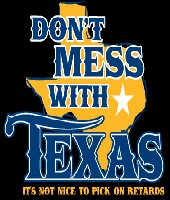|
|
 |
 |
 |
 |
register |
bbs |
search |
rss |
faq |
about
|
 |
 |
meet up |
add to del.icio.us |
digg it
|
 |

|
How 'they' found out how someone phreaked
NOTICE: TO ALL CONCERNED Certain text files and messages contained on this site deal with activities and devices which would be in violation of various Federal, State, and local laws if actually carried out or constructed. The webmasters of this site do not advocate the breaking of any law. Our text files and message bases are for informational purposes only. We recommend that you contact your local law enforcement officials before undertaking any project based upon any information obtained from this or any other web site. We do not guarantee that any of the information contained on this system is correct, workable, or factual. We are not responsible for, nor do we assume any liability for, damages resulting from the use of any information on this site.
Citation-> Business First-Columbus, Oct 8, 1990 v7 n5 p15(2)
COPYRIGHT Business First-Columbus 1990
----------------------------------------------------------------------
Title-> Columbus to Colombia connection exposed. (Long Distance
Specialties Telephone Co. has troubles with unauthorized
use of customer security codes) (Inside Report:
Telecommunications)
Authors-> Hall, Matthew
----------------------------------------------------------------------
Subjects-> Long-distance telephone service_Crimes against
Companies-> Long Distance Specialties Telephone Co._Crimes against
SIC Codes-> 4813
Features-> illustration; photograph
Article #-> 08986486
----------------------------------------------------------------------
Columbus to Colombia connection exposed
IT WAS AROUND 10:30 on a Saturday night in mid-August. A technician
with Columbus-based Long Distance Specialties Telephone Co. was making
a routine electronic check on the LDS system when he noticed a call
going to South America.
A few minutes later he noticed another.
And then another.
Though he didn't know it at first, the technician would learn later
that he'd been watching the traffic from an unauthorized caller who
apparently broke into the system by using the security code of a
paying LDS customer. The company now believes that an access card,
which contains the security code, was either lost by or stolen from
its rightful owner, says John L. Wilson, LDS's general manager.
"This is the first time anything like this has happened to us," Wilson
says. "Unfortunately, it's not all that unusual in the
telecommunications business."
Indeed, according to the Communications Fraud Control Association,
telecommunications thievery of all types now costs U.S. businesses
about $500 million annually.
LDS, which was born in 1986, resells long-distance telephone service
that's provided by the National Telecommunications Network, a
consortium of fiber-optic transmission companies. LDS is an affiliate
of Columbus-based Business Telephone Systems of America and the
Chillicothe Telephone Co.
Citing competitive reasons, Wilson would not release the number of
customers served by LDS or its annual revenues. However, he says the
firm is the third- or fourth-largest long-distance reseller in
Columbus.
A typical LDS customer is a resident or small business based in
Central or southern Ohio. But the callers the technician happened upon
that night were anything but typical.
"The technician who first noticed the unusual calls found that the
security code being used to access our system was assigned to a
customer who was not likely to be using the LDS Travel Card to call
the destinations involved," Wilson says.
The card referred to by Wilson allows LDS customers to make calls from
anywhere in the country by dialing a toll-free 800 number and then
punching in a security code.
The LDS technician was able to electronically block the unauthorized
calls. However, the next day, it became apparent the problem had not
gone away.
"The hackers came back into the system, looking for working access
codes," Wilson says. "It's our understanding they were making that
search with a personal computer and a modern."
In such cases, the hackers usually program a PC to randomly dial
numbers until they find ones that give them access to either
long-distance carriers or the long-distance lines contained within the
private-branch exchanges (PBXs) at many firms.
Thanks to the problems the company experienced on Aug. 18, LDS was
monitoring its system closely the following day and was able to
disconnect any unauthorized calls made by the hackers.
Two days after the technician first discovered the hackers, LDS
contacted US Sprint, the long-distance carrier providing its 800
service, and requested a list of the phone calls made on its system
over the weekend. From that document, LDS learned the unauthorized
calls were coming from phone booths and residences in the New York
City boroughs of Manhattan and Queens.
Since that first weekend of problems, the same hackers have continued
to make intermittent, unsuccessful attempts to break into the LDS
system. And despite the firm's rapid detection of its hacker problem,
Wilson estimates the thieves cost his company about $4,500 in lost
revenues.
"That's not a huge amount, but for a small company such as ours, any
loss hurts," he says.
LDS's efforts to track down the hackers also revealed that the same
thieves were apparently trying to break into the phone systems of two
companies in Virginia.
"On the printout of unauthorized calls we go from US Sprint, I noticed
that two of the calls from New York were made to domestic phone
numbers," Wilson says. "I called those numbers to see who the hackers
were trying to contact."
One of the numbers belonged to Herner & Co., a computerized library
service based in Alexandria, Va. Upon further investigation, it turned
out the hackers were unsuccessful in their efforts to break into that
firm's phone system.
Not so lucky was an NEC Corp. office in Fairfax, Va. NEC is a computer
and electronic-equipment manufacturer based in Japan.
"The hackers attempted to get into NEC's phone system by going through
our system," Wilson says. "While they were unsuccessful in that
particular effort, NEC officials subsequently found that the same
hackers had used another route to break into their system, starting on
Aug. 8, and had made a lot of unauthorized calls. NEC estimates the
hackers made $150,000 worth of calls before they were discovered."
Wilson says NEC actually listened in on some of the calls and found
that the hackers, speaking in Spanish, were making drug deals with
people on the other end of the line in Colombia, Peru and Ecuador.
LDS has turned over the information it's gathered on the hackers to
the Columbus office of the FBI, but an official with that office would
not comment on the status of the LDS-related investigation.
"We don't confirm or deny the presence of any ongoing investigations,"
says Doug Ogden, the FBI's senior resident officer in Columbus. "The
only time we make any public announcements is when some arrests or
indictments have been made in a case."
As for anyone else who may be considering hacking, LDS's Wilson has
this warning: "We can identify the originating telephones, so anyone
that attempts to break into our system can expect to be discovered.
And we will pursue charges to the full
----------------------------------------------------------------------
|

|
 |
To the best of our knowledge, the text on this page may be freely reproduced and distributed.
If you have any questions about this, please check out our Copyright Policy.

totse.com certificate signatures
|
 |
 |
About | Advertise | Bad Ideas | Community | Contact Us | Copyright Policy | Drugs | Ego | Erotica
FAQ | Fringe | Link to totse.com | Search | Society | Submissions | Technology
|
 |
 |
 |
 |
|

